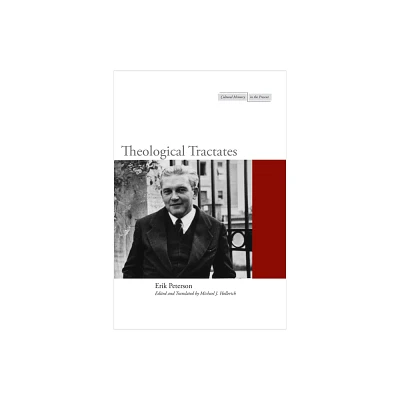Home
Boethius: The Theological Tractates
Loading Inventory...
Barnes and Noble
Boethius: The Theological Tractates
Current price: $11.95


Barnes and Noble
Boethius: The Theological Tractates
Current price: $11.95
Loading Inventory...
Size: OS
*Product Information may vary - to confirm product availability, pricing, and additional information please contact Barnes and Noble
Boethius: The Theological Tractates: The Consolation of Philosophy.
Anicius Manlius Severinus Boethius, of the famous Praenestine family of the Anicii, was born about 480 A.D. in Rome. His father was an ex-consul; he himself was consul under Theodoric the Ostrogoth in 510, and his two sons, children of a great grand-daughter of the renowned Q. Aurelius Symmachus, were joint consuls in 522. His public career was splendid and honourable, as befitted a man of his race, attainments, and character. But he fell under the displeasure of Theodoric, and was charged with conspiring to deliver Rome from his rule, and with corresponding treasonably to this end with Justin, Emperor of the East. He was thrown into prison at Pavia, where he wrote the Consolation of Philosophy, and he was brutally put to death in 524. His brief and busy life was marked by great literary achievement. His learning was vast, his industry untiring, his object unattainable- nothing less than the transmission to his countrymen of all the works of Plato and Aristotle, and the reconciliation of their apparently divergent views. To form the idea was a silent judgment on the learning of his day; to realize it was more than one man could accomplish; but Boethius accomplished much.
Anicius Manlius Severinus Boethius, of the famous Praenestine family of the Anicii, was born about 480 A.D. in Rome. His father was an ex-consul; he himself was consul under Theodoric the Ostrogoth in 510, and his two sons, children of a great grand-daughter of the renowned Q. Aurelius Symmachus, were joint consuls in 522. His public career was splendid and honourable, as befitted a man of his race, attainments, and character. But he fell under the displeasure of Theodoric, and was charged with conspiring to deliver Rome from his rule, and with corresponding treasonably to this end with Justin, Emperor of the East. He was thrown into prison at Pavia, where he wrote the Consolation of Philosophy, and he was brutally put to death in 524. His brief and busy life was marked by great literary achievement. His learning was vast, his industry untiring, his object unattainable- nothing less than the transmission to his countrymen of all the works of Plato and Aristotle, and the reconciliation of their apparently divergent views. To form the idea was a silent judgment on the learning of his day; to realize it was more than one man could accomplish; but Boethius accomplished much.


















